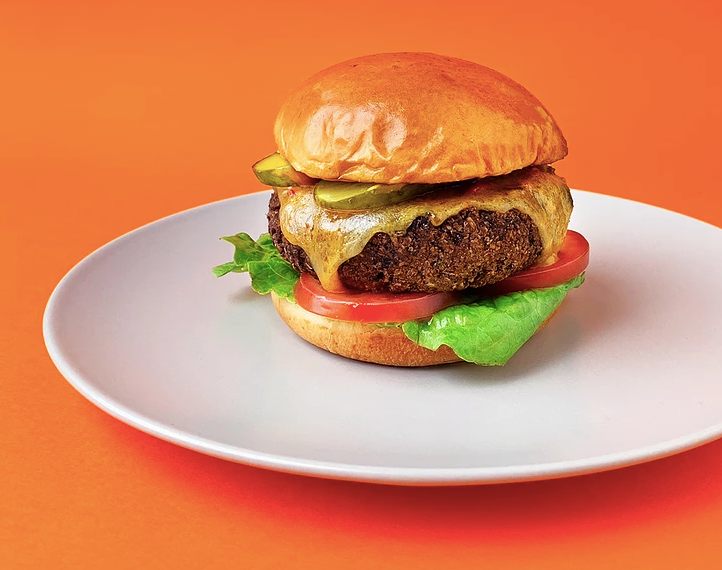Eating Insects: Interview with co-founder of startup, BUG
Sustainability Editor Monami Miyamoto interviews the co-founder of a sustainable startup aiming to get you cooking tasty high-protein insects at home.

Background on Aaron and the story of BUG
What was your childhood like?
When I was growing up, my dad worked for the RSPB (Royal Society for the Protection of Birds) and has was involved in conservation charities his whole life. So, I was influenced by him to think about conservation a lot – in fact, I got to meet David Attenborough when I was five since he was doing a talk about stag beetles! I also spent most of my childhood outside looking at random things in the garden, most of which were insects. I was fascinated by them because they're alien-like in many ways. For example, they have very odd life cycles and carry out some pretty obscure behaviours. A few years later, I studied biology and Environmental Sciences at college, then decided that insects were my thing. From that point on, I chose as many projects as I could to study them.
It was around then that I first learnt more about entomophagy (eating insects). I'd heard about the concept before but wasn't aware of the environmental health benefits, all of which came as a big surprise for me. It was this feeling of wonder that ultimately propelled me to think that there's probably plenty of other people who also don't know about entomophagy, and I wanted to share my amazement. The first step involved ordering insects in myself. I went online and ordered dried insects from reptile houses. I had live locusts and crickets in my home and was freezing, cleaning and cooking them into all sorts of things. My initial ideas were to turn the insects into something that could easily be recognised. This included typical meat alternative such as burgers and sausages that other people wouldn't be offended or put off by the product they're eating.
How did you meet your co-founder?
At one point, I went to an art Science Festival where I was sharing my work and posting them on my Instagram. Through that, my now co-founder (Leo) found me. Since he'd already been experimenting with entomophagy at home, he reached out to me. We went for pho in Cambridge, where Leo's parents live. We realised that we shared similar views on issues with the current insect product market: most of the products were just snacks, which couldn't be integrated into regular everyday meals. From there, we started playing around with recipe videos in his parent's garage and shared them online.
This initial phase in the garage was all new and exciting – we were taping lights, fixing the ceiling, and doing all sorts of crazy stuff - the classic start-up story. Already at that point, people were messaging us, asking where they can get insects and how they can cook them. That was what inspired us to create recipe kits. The thinking was that just providing insects alone isn't enough to give people the confidence they need to cook insects. You need to provide them with slightly more so that they feel comfortable, and it's like, 'If I do it, I'm not going to mess this up, and I'm not going to poison myself.'
Can you tell us about the product development of The BUG recipe kits?
We developed the first kits (The Bug Box) and released them during the first Covid lockdown. It was an interesting time to launch a business, but we treated it as our beta testing. We were packaging them from our kitchens and bedrooms; it's not like we could churn out loads of these kits. There was also no money to channel into marketing. So, we ended up just sending out free kits to influencers to get a bit of initial traction. Then we started collecting data on what our initial customers liked and tested out a few different concepts, recipes, and pricing models - making minor tweaks to figure out how we could make insects a regular part of people's diets.
After testing, we started changing the kits to fit what we've learned: this is happening now through our recipe kit 2. It's different from the original bug box in terms of styling and the type of recipes that we're providing. One of the major things we found out is that unless we give every ingredient for a recipe, like Gousto or Hellofresh, people need flexibility. So, we decided to provide select key ingredients for a recipe, but people could adapt them – they could use whatever type of pasta or veg they already had in their fridge. So, that was around the end of 2020. Then we decided that since we've had some traction and understand our audience better, we can transition to getting funding for marketing, outsourcing the supply chain, and enabling me to work full-time.

The BUG Business
What do you think is the primary motivation for people to try your products? Is it the nutritional aspect, the sustainability aspect, or something else?
I think that it's a mix - the main thing most people would say initially inspired them to buy a kit would be predominantly curiosity, just to see what this is about. A lot of those people would also say they're aware of the nutritional benefits and sustainability angle. So, it's a meshing of a few of those reasons. Many people speak to have already eaten insects or have seen other people eating insects, for example, when they're travelling.
Then, I think that the reason people stay is that the food tastes good. Once they've got over that initial curiosity, there have to be other reasons why people would stay. For us, we think it's the availability of a bunch of different recipes. The foodie angle is quite big for us because for people interested in experimenting with new foods, this is an entirely new sphere they can get involved with. Hopefully, as the market develops, we'll have more types of insects that people can use, which attract people for the broader range of flavours and ways to cook them.
What was an unexpected finding or learning from the process of growing your business?
Interestingly enough, Leo and I recently learned that the people interested in eating insects regularly aren't squeamish handling whole insects or seeing them in food. In fact, people who like insects want to see their food, and they want to taste and experience the insects as they are. That was a fascinating bit of learning because it differentiates us from everyone else in the market: most companies, apart from maybe Eat Grub, only sell snack products. In snacks, the insects are hidden as a powder in an energy bar or a cracker. But this doesn't necessarily serve the market of people that would enjoy seeing and eating insects.
So, is your target audience people who already want to eat insects?
Yes. We feel that most of the existing insect-food brands have tried to go mainstream too early. They've been attempting to create products that appeal to the mass market without securing a baseline loyal customer base with the people that are already interested and fanatical about eating insects. Our tactic is to create products that directly satisfy the desires of the people that are really passionate about eating insects, who want to see any insects in their food. Once we've created that loyal community, if we were to move into a supermarket, then that's when we'll think about making things that might hide insects so that it suits a mass-market option. But at the moment, we're focused on going direct to the consumer because it allows us to have direct communication with our audience, which then allows us to help educate and connect with consumers.
How big is the market for the people who are already interested in eating insects?
From the people we've spoken to, this market's size seems significant enough for us to run a successful business and begin growing. As long as we can find that loyal initial customer base, I have faith that the market will grow pretty quickly. All it takes is for those initial groups of people to be empowered and start talking about eating insects with other people. We feel there's a huge, viral, social element to trying something completely new and polarising for most people. A lot of people aren't open to the idea of eating insects or are absolutely horrified. My co-founders Mum, for example, is just not interested in insects at all. But then there's a select group of people who understand the benefits and are really into it. We think that this polarisation can help promote your product through word of mouth and social interaction.
What's your plan for the upcoming months?
Based on the recent funding round, we're planning on setting up a couple of offices - with one of them converted into a studio, including a kitchen space. This will allow us to film recipe videos whenever we want. Our plan is to get influencers, customers, anyone really to cook insects with us because we feel that the humour element of seeing other people's reactions to eating insects has viral potential. Also, no company at the moment is creating a sense of community for this movement - Everyone's very much in their own lanes, with adolescent companies posting about insect food every now and then, but they tend to be sales-oriented. So, we also want to add value by becoming the go-to platform for edible insects. Eventually, we'd be able to keep people interacting and engaged by also running public events.
What is the rationale behind your humorous, light-hearted branding?
When I first met Leo, he'd already made a tongue-in-cheek video based on an old Apple or Google advert, playing into this famous Kickstarter video from the Dollar Shave Club – it was dry humour but pretty funny. We decided then that we want to give our brand a similar fun tone because insects, for many people, seem disgusting or offensive, so we tried to lighten the mood – by making our branding bright, colourful and fun. So that's the tone of voice that we established early on, and whilst our style has developed over time, that main thread retained.
What is a core value that you hold in your business?
I would say truth and objectivity are two fundamental core values that both Leo and I hold. We want to make decisions based on the best data that we have without any ego getting in the way. When it comes to hard times or difficult discussions, we're conscious that we need to lay out the facts and try to understand the best move forwards for the business, not necessarily for one of us or for some other reason. This value was actually inspired by the book called Principles by Ray Dalio – one of his principles is extreme transparency. We're trying to follow that model in terms of being very open and honest about what is going on, both personally and in the business, so that we could make the best decisions.
You can support BUG and find cooking inspiration at www.bug.recipes







